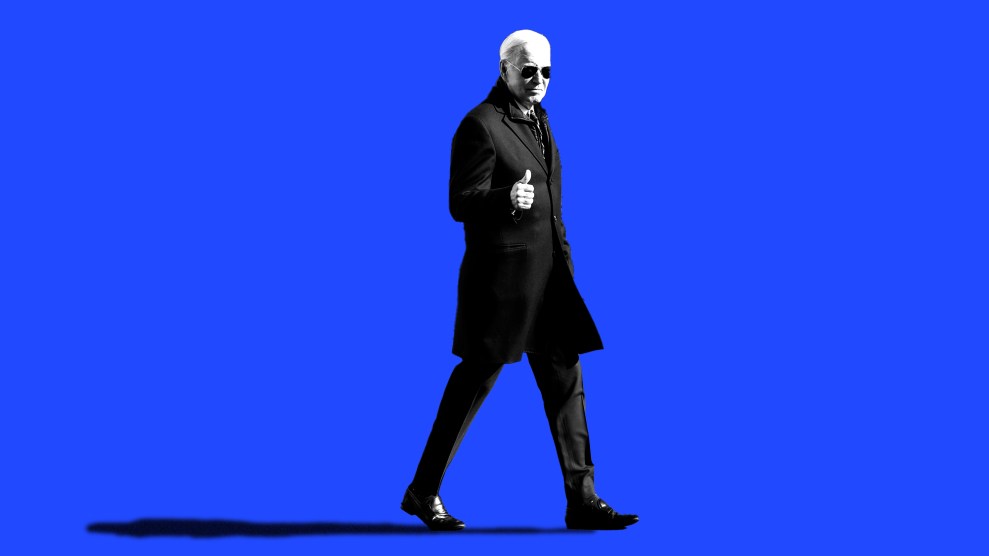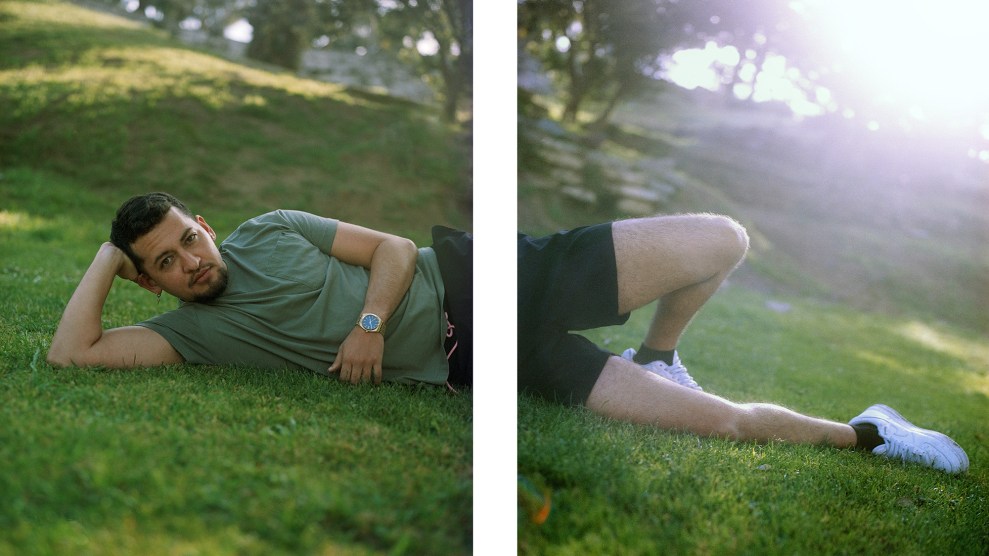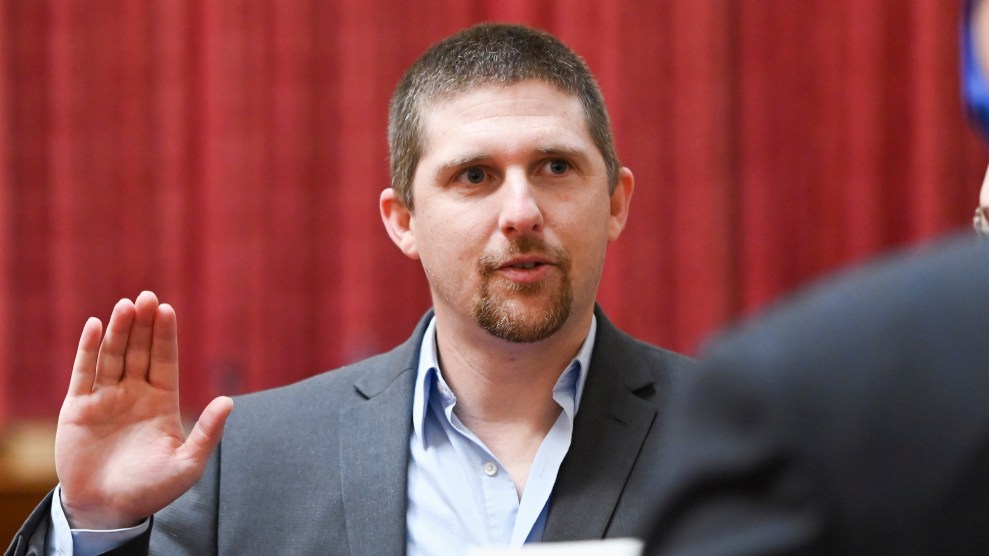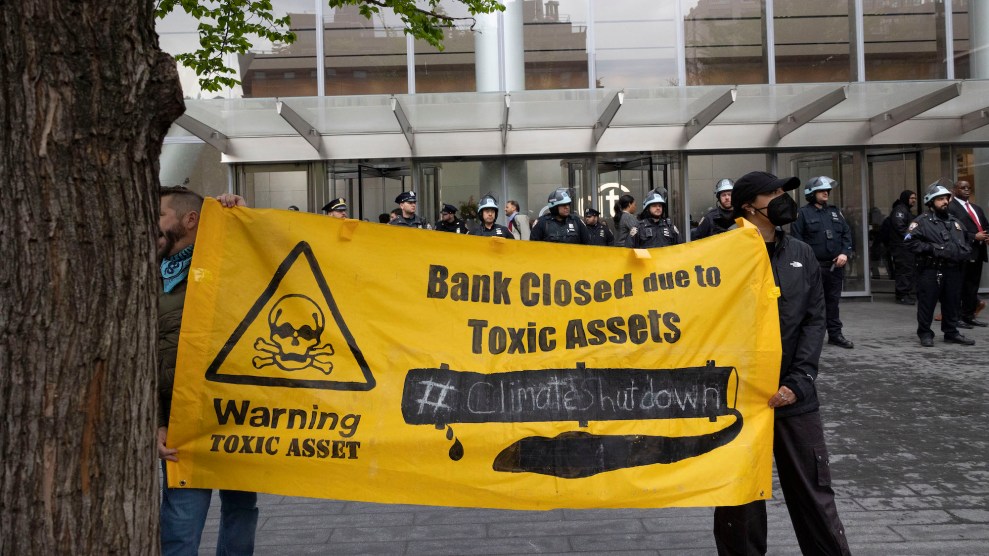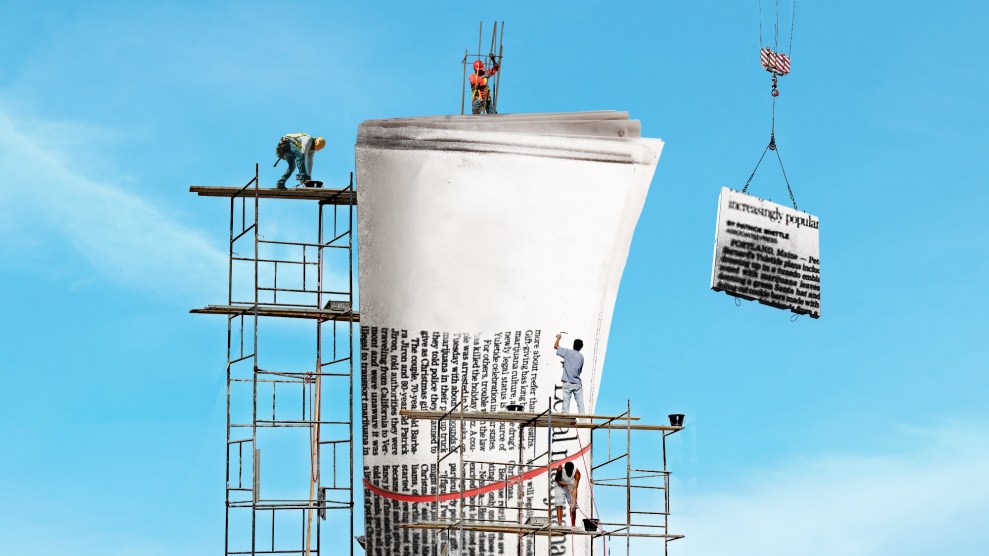Now, I’m not one of those people who say they liked Bruce Springsteen before anyone else, but I did wear high-top sneakers before they were fashionable. Lately, however, I seem to be lacking the technical knowledge necessary to make appropriate footwear selections.
A Niketown recently opened about 20 minutes away from me. (Soon we’ll all be able to say that.) Niketown is a store, sort of. It’s more like a shrine to sports heroes wearing swoosh-marked shoes and clothes.
I recognized a black-and-gray map of the world that stretched across half the store, but if marketing and special events manager Mark Sacks hadn’t given me a tour, a lot of the other stuff would have escaped my eye. He pointed out a waffle pattern on the glass stairs. That’s where it all began for Nike, he explained.
While handcrafting running shoes for the University of Oregon track team he coached, Nike founder Bill Bowerman used a waffle iron to melt the rubber soles. He and his team were delighted to find that the waffle shape afforded them unexpected traction. It’s a beautiful piece of Nike lore, but someone could have held a gun to my head, threatening to shoot unless I explained why those little squares were on the stairs at Niketown, and I’d never have guessed they were a tribute to Nike’s waffle-bottomed origins (another irrefutable argument for gun control). I shudder to think of the loss to the sports world and the beauty of Niketown’s steps had Mr. Bowerman owned a microwave or a double boiler.
I also needed coaching to hear the sounds of the different sports that they pipe into each section. One area had a tape of beach volleyball noises. It had a lot of grunting and, if you listened really carefully, you could hear someone rubbing zinc oxide on their nose. Another section had weightlifting noises. I tried to buy the album.
There were huge video screens showing Nike commercials over and over again, as well as stacks of gym mats on dollies, cushioned barbell replicas, weight benches, and giant golf tees to sit on. You need to sit down there. You might even want to bring a cot. I was exhausted — and I wasn’t even shopping.
There are more types of Nike footwear than there are guinea pigs named “Snowball.” Niketown Los Angeles has display racks full of shoes specifically for hiking, climbing, golf, basketball, running, volleyball, skateboarding, soccer, and wrestling. I didn’t buy any because they didn’t have a pair specifically designed for my sport, which is sitting.
I thought of buying a pair of basketball shoes, but I was afraid I wouldn’t qualify. What if I told the store clerk I wanted a basketball shoe and he asked how often I played and I had to sheepishly confess that the last time had been about two years ago and he sent me over to the shame section in the corner where I was forced to purchase a pair of big, blue, fuzzy slippers with a swoosh mark on them? I couldn’t risk it.
Besides, the shoes themselves now look like they require special care. One pair looked like you had to punch in an access code to lace them. Some, I’m certain, require their own gym membership. I couldn’t help wondering if volleyball shoes would just seize up if you tried to play basketball in them.
I saw a display with a pair of the gold running shoes that Nike designed for Olympic sprinter Michael Johnson. The marketing and special events manager told me that, since Michael Johnson ran around the curved track in only one direction, his running shoes were made so they’d both slant in the same direction. The millisecond edge that technology gains him could be worth millions of dollars. Using Nike technology to improve my four-and-a-half block (each way) walk time to my foster kid’s kindergarten, on the other hand, is simply not cost-effective.
Nike shoes are not cheap and not even especially attractive, yet they go like hotcakes. I think it’s a “dress for success” thing. For example, I admire Jackie Joyner-Kersee’s success on many levels. I want to be like her. I see a picture of her with that machine body and Nike shoes, and I think, “Which one of those can I have right now?” Since even my face muscles aren’t as strong as hers, I guess it’s the shoes.
In fact, most of us look so unlike the athletes we are wanna-being that sporting attire identical to theirs only serves to highlight our obvious physical differences. I am never, for example, going to be like Michael Jordan. This is an ugly fact that I must live with each day. I can wear sneakers just like his, I can even stick my tongue out whenever I make an aggressive move to the basket, but I am never going to be like Michael Jordan. On the other hand, he makes $30 million a year in the arena and another $40 million away from it. On the off chance that wearing his sneakers could grant me a small fraction of that success, it could be worth it.
I take size eight.
